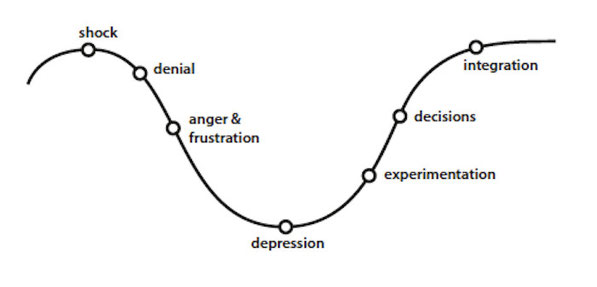

Imminent legislation to end the “mud-slinging” of marriage breakdowns announced by the UK’s Justice Secretary has been welcomed by a leading family lawyer who has long been campaigning for the introduction of a ‘no-fault’ divorce law in Jersey.
Following a renewed vow by UK Justice Secretary David Gauke MP to bring in new legislation which allows for couples to divorce without having to make accusations against one another, Advocate Barbara Corbett has said this is good news for safer divorce provisions in Jersey.
As things stand, Jersey’s divorce law – formulated in 1949 – only allows either spouse to present a petition for divorce if they can prove that their partner has either done them wrong, behaved unreasonably, is not mentally stable or is serving a lengthy prison sentence.
Now, a renewed promise from the UK Justice Secretary to bring about a new approach to divorcing called ‘no-fault’ legislation – this means that couples can simply decide to end their marriage without having to make these accusations.

Pictured: Advocate Barbara Corbett has been a long-standing campaigner for a 'no-fault' divorce provision.
Writing in the Telegraph, Mr Gauke MP said: “If a relationship has any chance of survival, it cannot be right for the law to undermine this possibility by encouraging mud-slinging through the legal requirement to identify a ‘guilty’ party.
“This too often leads to children being caught in the middle of a fractious and upsetting process, one that scuppers any opportunity for the parents to work together in the best interest of their offspring.”
Advocate Corbett, who has been campaigning for a ‘no-fault’ provision within divorce law amongst other reforms to address what she has previously described as “archaic” aspects of the 1949 legislation.
The leading family lawyer echoed the sentiments of the Tory MP regarding the consequences of messy divorces on children of the separating couple.
She told Express that introducing the option to have ‘no-fault’ divorces is “likely to take away a lot of the animosity and the difficulties because when you have to have fault-based divorce… you have to throw mud… then inevitably the children get tied up in that and it becomes polarised."
This hostility, Advocate Corbett warned, is capable of spilling over into other aspects of getting divorced such as financial settlements and custody battles.
“Whereas, if people can work together collaboratively and in a conciliatory way they can move forward and that benefits the children,” she explained.
The renewed bid to get this legislation passed in the UK after it has been shelved for many years comes ahead of the publication of results from an extensive public consultation in Jersey on divorce reform, civil partnership and the age of consent for marriage next week.

Pictured: Justice Secretary David Gauke MP has renewed his pledge to bring about 'no-fault' divorce in the UK (Victoria Jones/PA).
In September 2015, the States decided in principle to introduce more up-to-date divorce legislation to replace the 1949 law. A government spokesperson said: “Members agreed that consideration should be given to removing the existing bar on divorce until after three years of marriage, moving to no-fault divorce, introducing joint filing for divorce, and removing the ability to contest a divorce.”
The Government say that once this is published, Home Affairs Minister Constable Len Norman will then decide how to proceed regarding law drafting instructions.
Addressing the concern that these changes could increase divorce rates, Advocate Corbett said: “None of this is encouraging more divorce, in fact quite the opposite, because if people know they have the freedom to get divorced when they need to then they’ve got an incentive to carry on working harder at their marriage, knowing that if it doesn’t work they can get out.
“Whereas if they’re forced to stay together, they’re perhaps more likely to give up… It’s counter-intuitive to say that it encourages more divorce because I think it will make divorce better, not easier."
Advocate Corbett added that this could signal possible change to other out-dated aspects of family law in the island including that one can still annul a marriage because your spouse suffers from epilepsy and that two female parents don’t automatically get parental responsibility over their children and married women have a domicile of dependence on their husbands.
“There are lots of ways in which the law could be streamlined,” the lawyer said, adding, “anything that moves divorce forwards on a ‘no-fault’ basis must get official.”
Denise Carroll from Milli’s Centre for Separated Families – a charity which helps separated families who are struggling with child handovers during divorce or separation – also expressed support for the ‘no-fault’ provision with the added caveat that those going through divorce receive emotional support through the change.
Denise told Express: “In regard to ‘no-fault’ divorce, we are fully in favour but would stress the importance of ensuring that the correct emotional support is in place for the couple separating. Separation and subsequent divorce, or the breakdown of any long-term relationship, is a grieving process similar to the death of a loved one.

Pictured: Denise likened divorce to the death of a loved one, where individuals experience this range of emotions (Karen and Nick Woodall/Family Separation Clinic).
“No-fault divorce would do a lot to relieve some of the stress and animosity following many, possibly most, divorce cases but it wouldn’t necessarily change or relieve the grief that the couple feel and this is where support is severely lacking and it needs to be recognised that without this support any children involved could still be affected negatively by those emotions while their parents work to come to terms with them.”
Comments
Comments on this story express the views of the commentator only, not Bailiwick Publishing. We are unable to guarantee the accuracy of any of those comments.